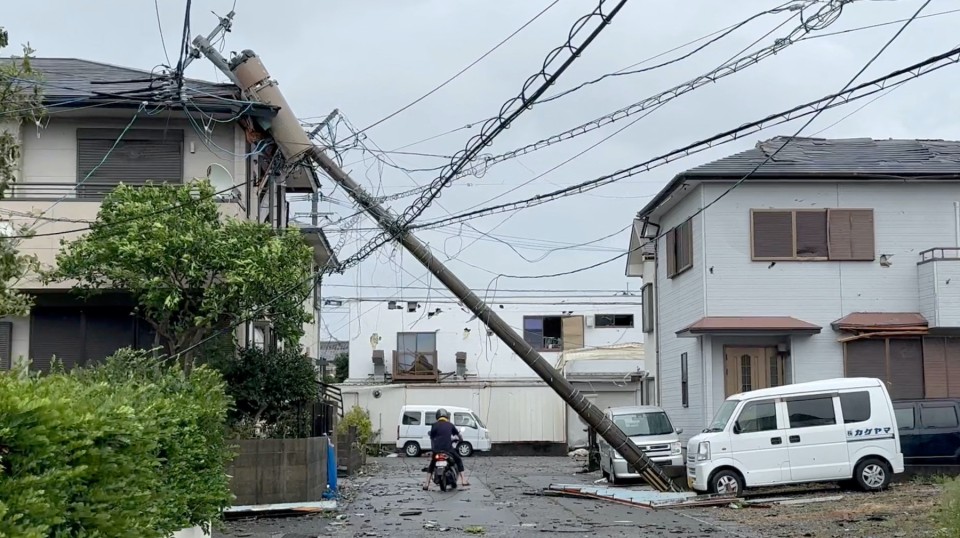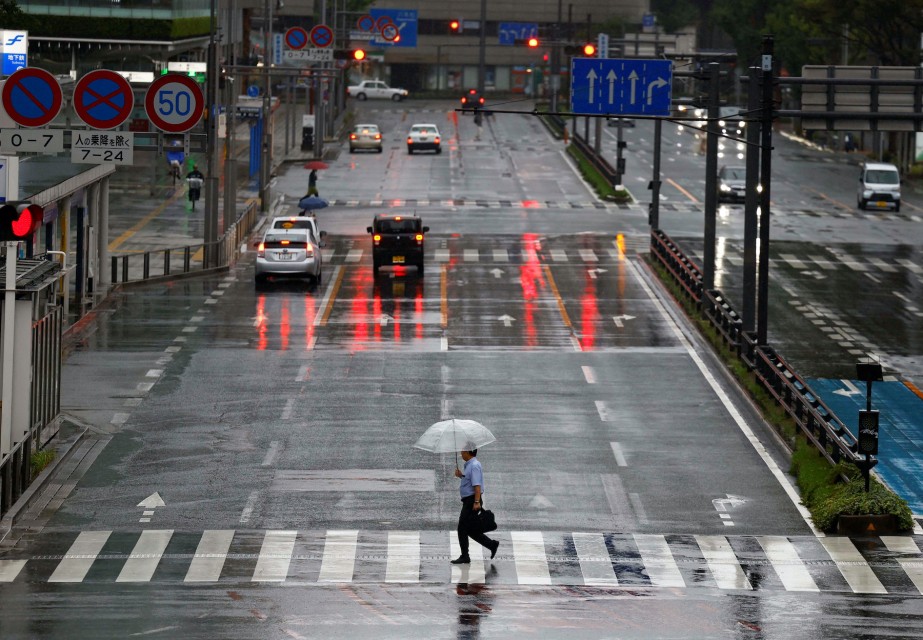

By Tim Kelly and Irene Wang
FUKUOKA, Japan (Reuters) -Typhoon Shanshan deluged large parts of Japan with torrential rain on Friday, prompting warnings for flooding and landslides hundreds of miles from the storm’s centre, halting travel services and shutting production at major factories.
In the southwestern region of Kyushu, where what authorities say could be one of the strongest storms ever to hit the region made landfall on Thursday, residents in Fukuoka city were hunkering down, with streets quiet and shops shuttered.
Sheltering at the entrance of a rain-lashed, deserted shopping mall near the city’s train station, university student Kokoro Osoegawa, 21, was struggling to get home.
“There are no trains because of the typhoon so my parents are coming to pick me up. I stayed at a friend’s house, and then came here. I thought there would be some trains but there are none,” she said.
“I’ve never experienced all the trains stopping before.”
At least three people have been killed and 78 injured in storm-related incidents in recent days, according to the disaster management agency.
Bringing gusts of up to 50 metres per second (180 km per hour/112 mph), strong enough to blow over moving trucks, the typhoon was near the coastal city of Kunisaki in Oita Prefecture at 8:45 a.m. (2345 GMT) and moving northeast, according to authorities.
Around 125,000 households in seven prefectures were without power in Kyushu, according to Kyushu Electric Power Co.
But the warm and moist air flowing around the typhoon have also brought heavy rains in areas far from the main body, which authorities say is concerning given its slower than expected movement across the country.
Notices advising residents to be ready to evacuate have been issued to more than 4 million people across the country, mainly in the hard-hit Kyushu area but as far away as the capital Tokyo and nearby Yokohama. Authorities in Yokohama said there were risks of landslides in some areas due to heavy rain.
But, as of Thursday, only some 30,000 had been evacuated, mainly in Kyushu, disaster management minister Yoshifumi Matsumura said.
After moving from Kyushu, the storm was expected to approach the central and eastern regions, which includes Tokyo, around the weekend, the weather agency said.
Toyota suspended operations in all of its domestic plants due to the storm, while other automakers Nissan and Honda, semiconductor firms Renesas and Tokyo Electron, and electonics giant Sony also temporarily halted production at some factories.
Airlines, including ANA Holdings and Japan Airlines, have announced cancellations of hundreds of domestic and some international flights. Many ferry and rail services, including the bullet train between Tokyo and the central city of Nagoya, were suspended on Friday morning.
Lin Yue-Hua, a 60-year-old tourist from Taiwan, had her flight from Fukuoka back home cancelled on Thursday. She was told to book another flight but did not know when she could return.
“We were very worried and upset because we didn’t know what to do,” she said.
“We stayed one more day in Japan. Then we saw it in the news that our flight from Taiwan couldn’t land in Japan after flying around the area for about 40 minutes and it flew back to Taiwan. So we have been busy trying to find our way home.”
Typhoon Shanshan is the latest harsh weather system to hit Japan, following Typhoon Ampil, which also led to blackouts and evacuations, earlier this month.
(Reporting by Tim Kelly and Irene Wang in Fukuoka; Writing by John Geddie; Editing by Stephen Coates)







